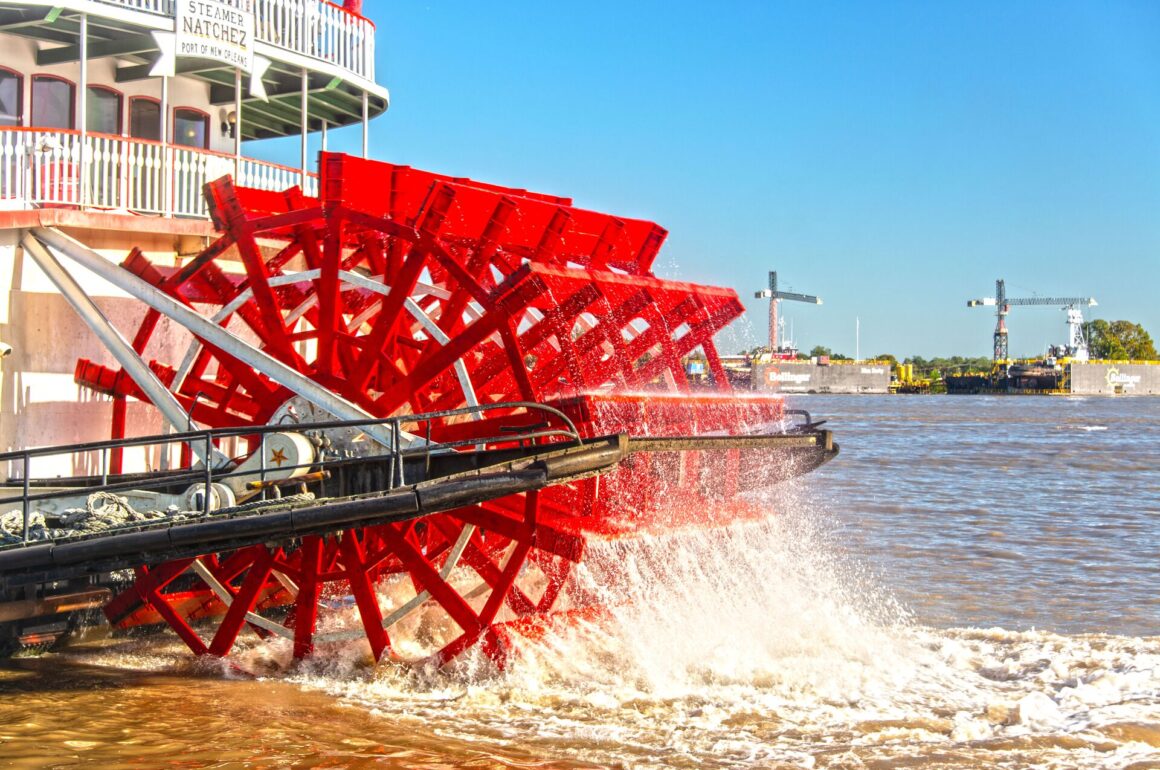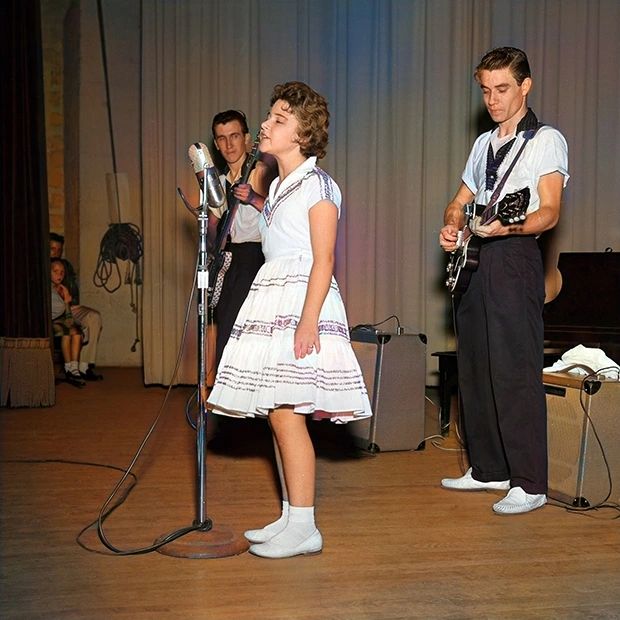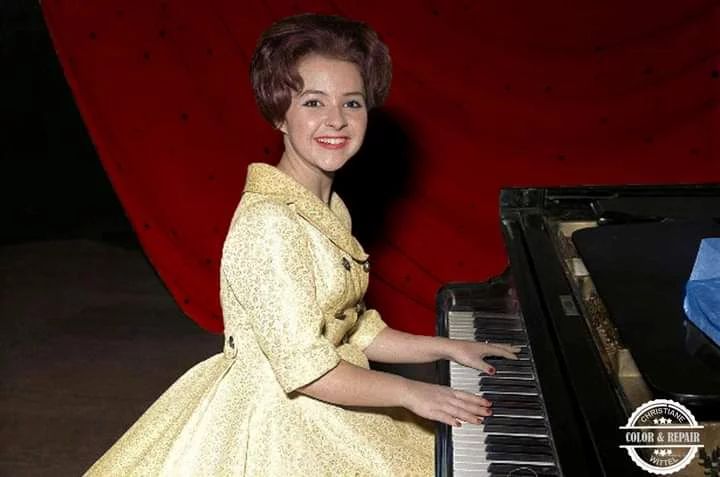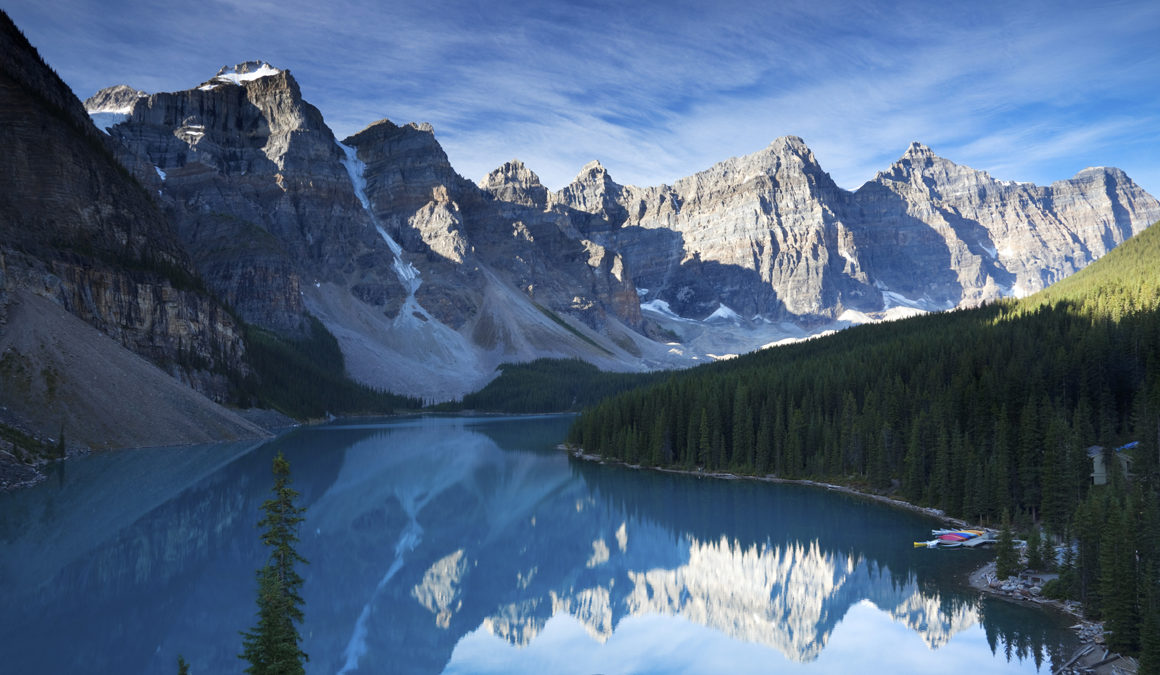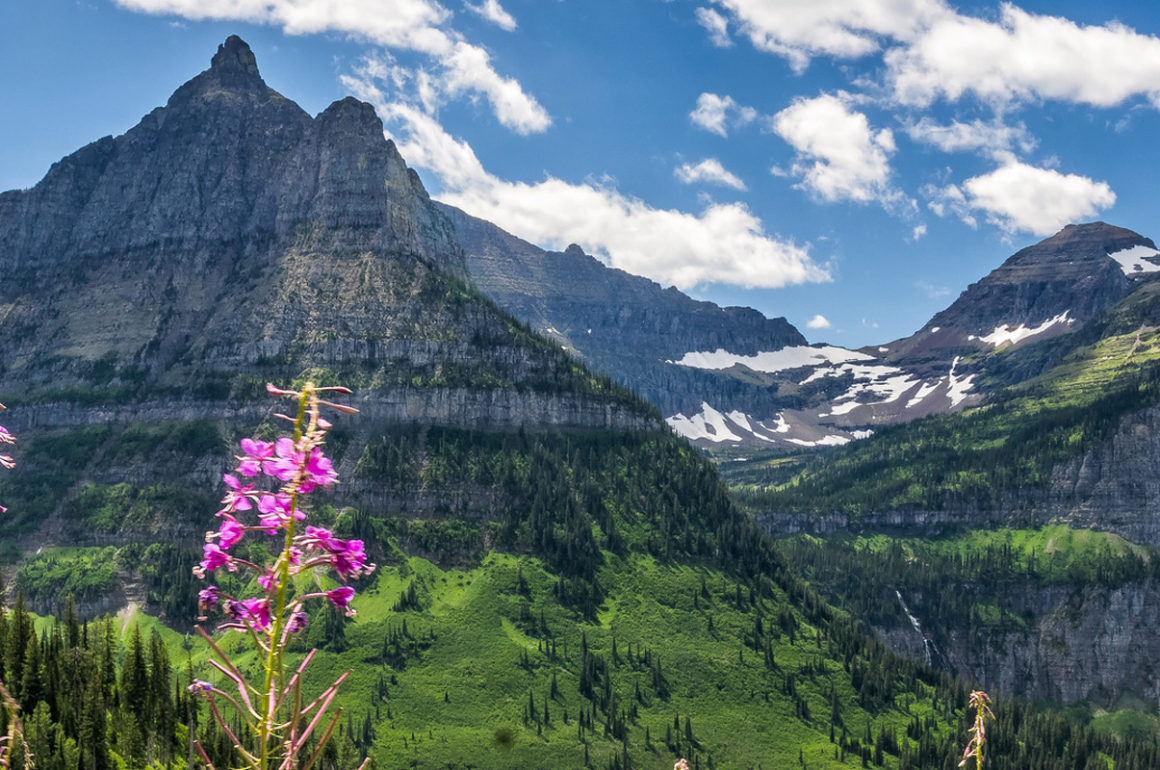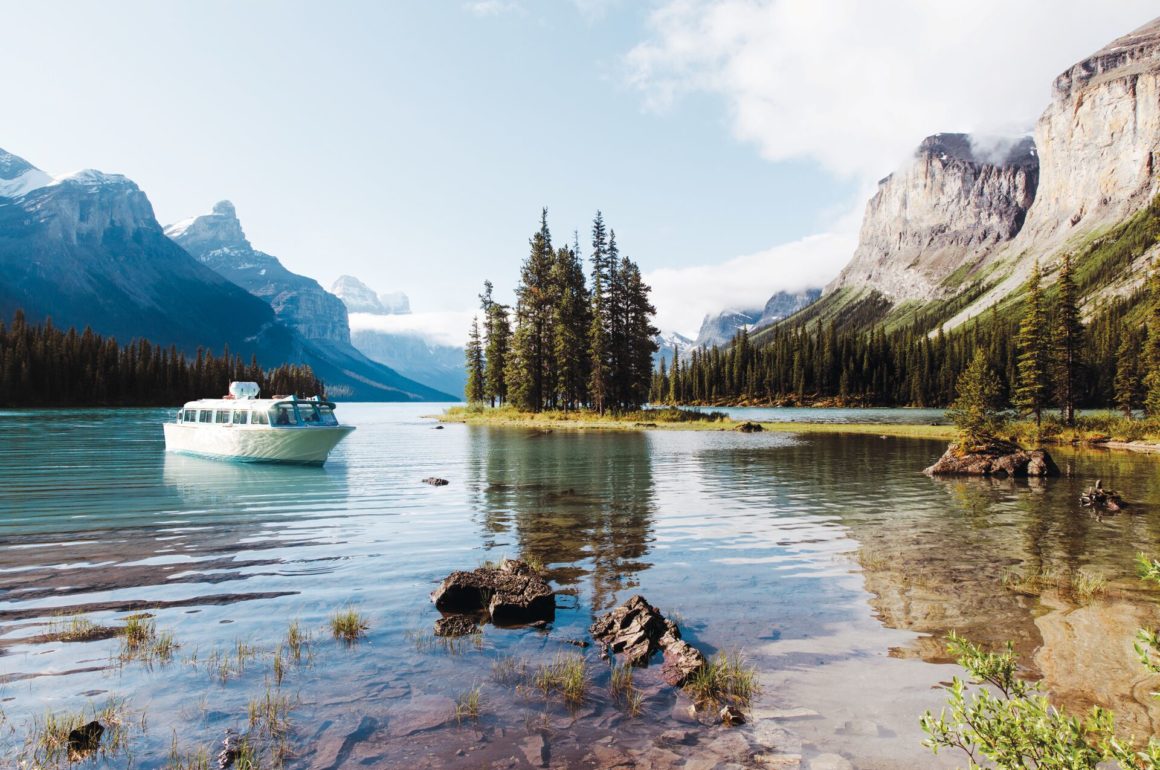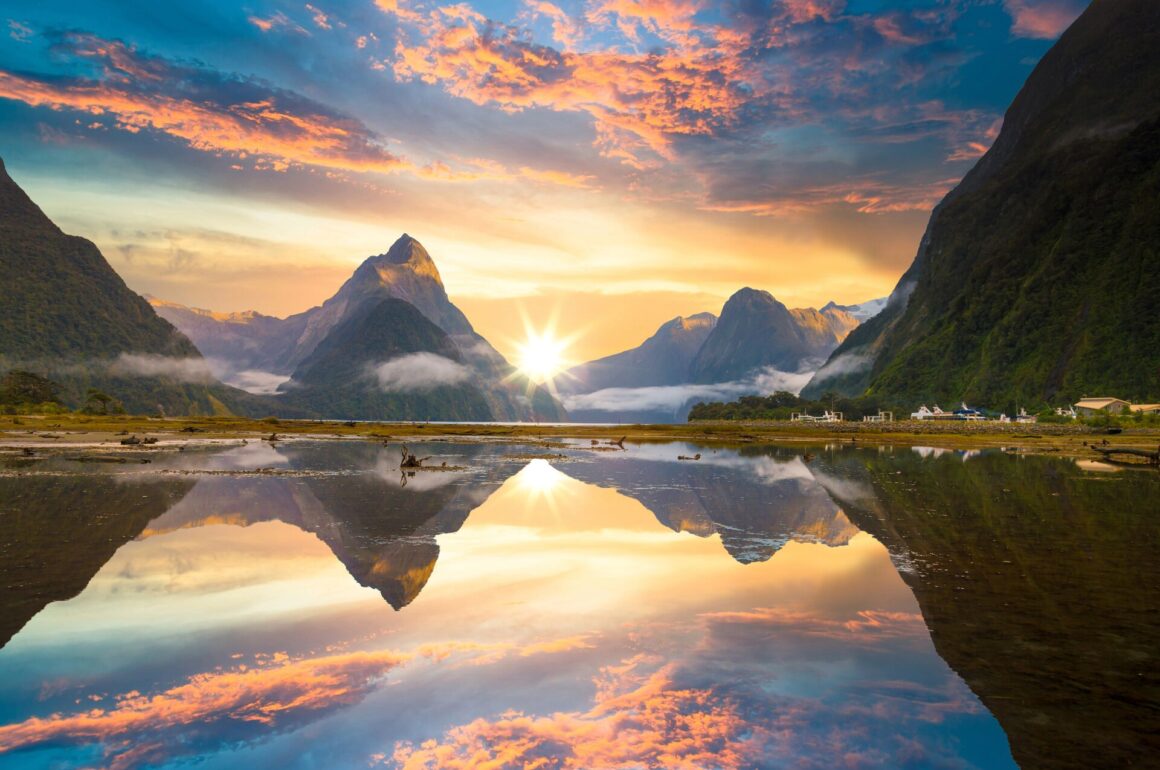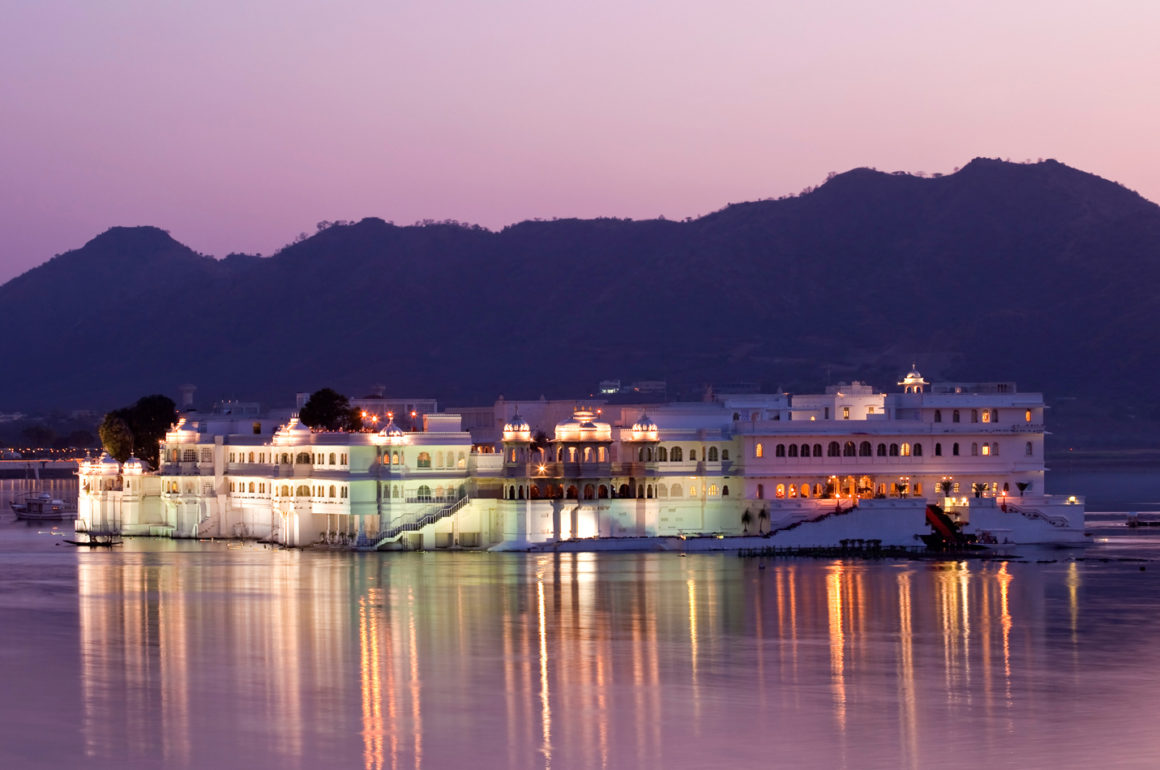A captivating world of wildlife, communities and industry, with an amazing story to tell, the Mississippi Delta is one of the lesser-known treasures of the American South.
We had the pleasure to speak with Barbara Johnson, co-founder of Great Delta Tours to learn more about her love for the Delta. She talks us through the significance of these remarkable wetlands and gives a peek at what’s in store on your journey through New Orleans and this natural wonderland.
Experience this on: Southern Grace

Arriving in Louisiana aged 17 with her family, Barbara studied for a Masters in Urban and Regional Affairs in New Orleans, and fell deeply in love with its community. New Orleans has now been her home for over 30 years, and she founded Great Delta Tours six years ago with her colleague, Dr. Peter Yaukey, a local science professor and naturalist.
Originally working in Community and Economic Development, Barbara’s entire life has been about building up this community. She tells us that it was when working as a consultant with coastal communities after Deepwater Horizon (the BP oil spill) in 2010, that her ‘aha’ moment happened.
Founding Great Delta Tours

“New Orleans is known around the world for its distinctive culture and the richness of its food, music and architecture,” Barbara explains. “But we’re less celebrated for our natural environment – one of the most important river delta systems in the world.”
“With ecotourism fast-growing, I realized there was an opportunity to build on that sector of our travel and leisure economy; to tell the story of this amazing natural environment and to also build awareness of how we sustain ourselves as a coastal community.”
A fresh perspective
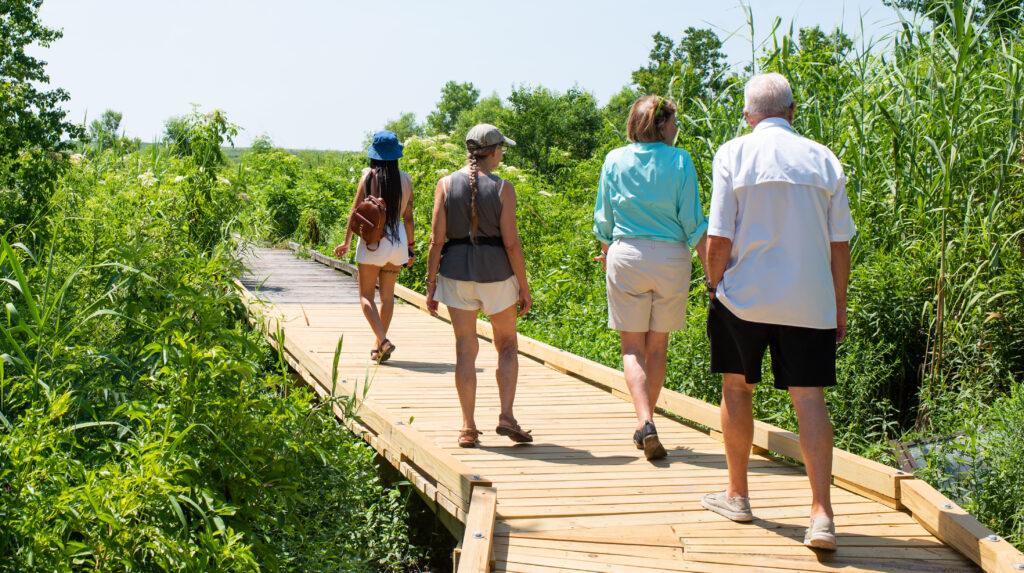
“This is what we celebrate on Great Delta Tours and what guests of Luxury Gold will experience,” says Barbara. “We offer a fresh and unforgettable perspective and understanding of New Orleans. And we reveal the beauty and importance of one of the largest river ecosystems in the world, through cultures, wildlife, fisheries and economic assets that are not found anywhere else.
“We are the river. Everything comes from the Mississippi that’s created this amazing tapestry of land and people and diverse cultures and wildlife.”
You may also be interested to read: Why New Orleans’ Ritz Carlton Hotel is a cut above the rest
A rainforest of North America
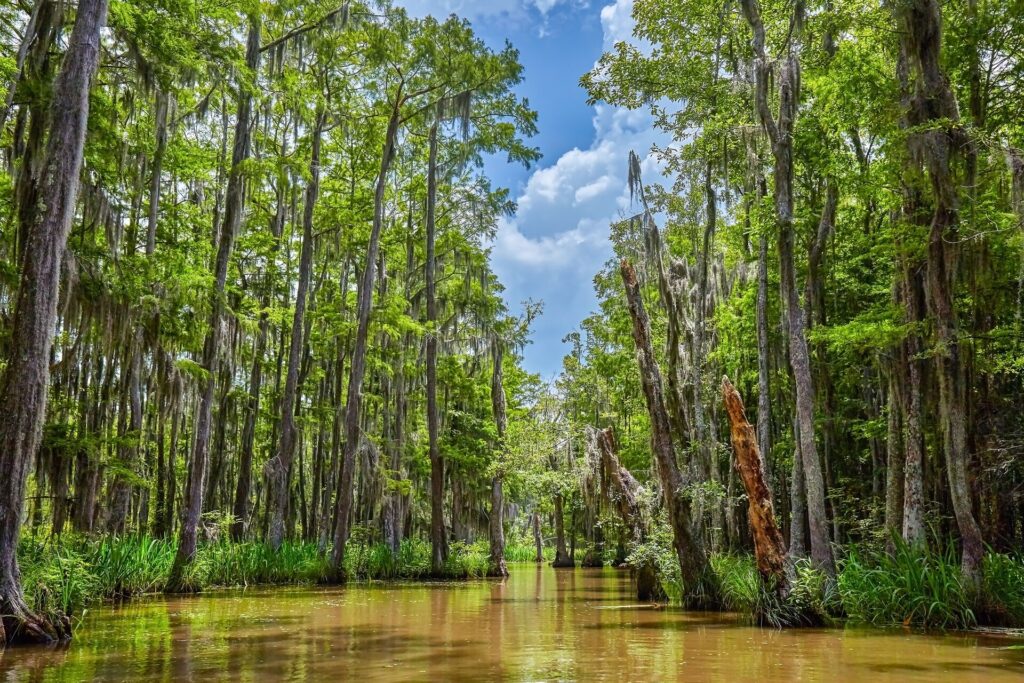
‘The Mississippi Delta’ refers to the bottom third of Louisiana and is a massive wetland system – a 200-mile-long swathe from Texas to Mississippi. “It’s sometimes referred to as a ‘Rainforest of North America’,” Barbara says, “because of its diversity of plant life, marine life and wildlife.”
“These wetlands are like giant nurseries of life and on this tour Luxury Gold guests will get to truly experience that bounty. We go beyond the flood walls and visit places most visitors don’t get to experience.”
Highlighting the importance of the Mississippi as a navigable waterway and one largest port systems in the world, she explains that the wetlands protect incredibly important economic resources. “We are one the largest producers of energy in the country,” says Barbara, “and this land protects all of that.”
Celebrate birds and conservation projects
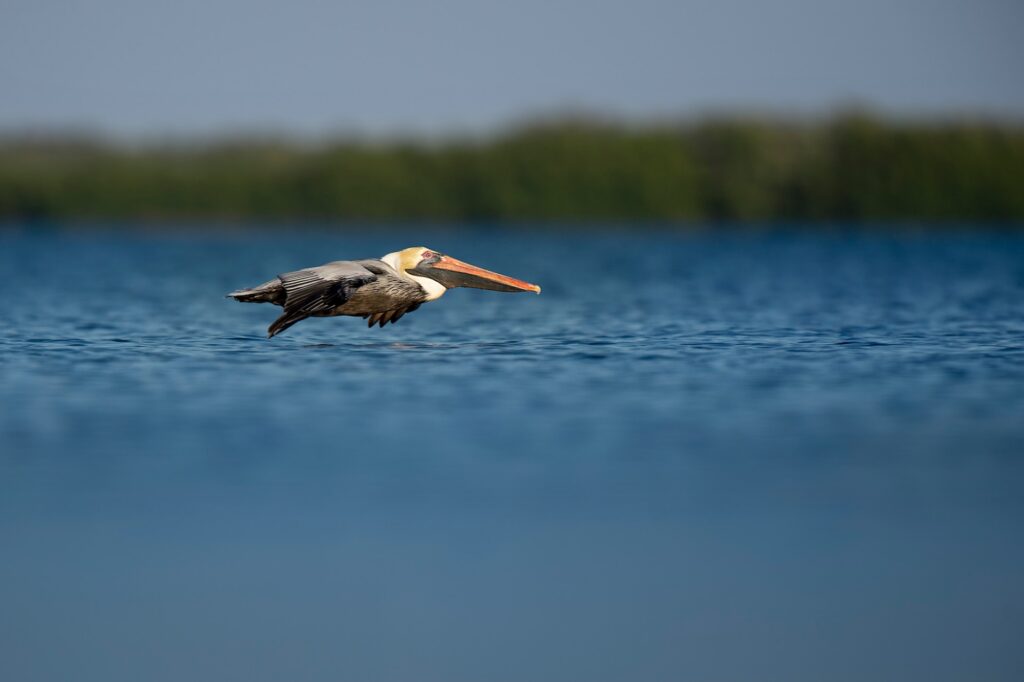
Explaining that the Mississippi Delta is also one of the great bird flyways of the world, Barbara tells us “Right now, there are millions of birds moving from South America to North America on a great migration. The wetlands provide them food and habitat along their way, and we endeavor to seek out birdlife on our tours.
“On the tour we’ll celebrate some of conservation success stories that we’ve been able to achieve. Whether it’s saving the Brown Pelican, our state bird, that was on the verge of extinct extinction from the 60s to the 80s, or the alligators whose population is once again rising steadily. These animals are no longer threatened, and we have a very rich number of them here now. It’s a great success story for us.”
Discover another spectacular experience on Southern Grace: Brenda Lee: The pop icon who inspired some of the biggest names in music
A fortress we must protect

“The wetlands have a very important role to play in flood prevention,” Barbara explains. “They’re a crucial part of the fortress of levees and flood walls protecting the people of Louisiana.”
New Orleans is surrounded by water and is located in a depression between the Mississippi River and Gulf of Mexico that is up to five meters deep. This makes the city especially vulnerable to flooding from hurricanes, the river and heavy rainfall.
“The wetlands act like giant speed bumps and barriers, protecting around 1.5 million people from storms and hurricanes that come off the Gulf,” she says.
“For various reasons we’ve been losing these wetlands and the land is sinking, partly due to natural evolutionary processes and also as the result of human activity. So now in South Louisiana we have underway one of the largest climate adaptation projects in the world, working to restore what’s been lost since the 1930s.”
Louisiana is recognized as a global pioneer in taking action to mitigate the impact of the climate crisis to its communities. In place since 2007, a $50 billion, 50-year plan developed using the best available science and engineering, guides the state’s efforts to sustain its coastal ecosystem, safeguard coastal populations, and protect vital economic and cultural resources.
“Our future depends on ensuring that we have a flood protection system as well as restoring and conserving our wetlands here,” says Barbara, “and this is what guest will also see as we point out these projects on our tour.”
Discover fishes and fishermen
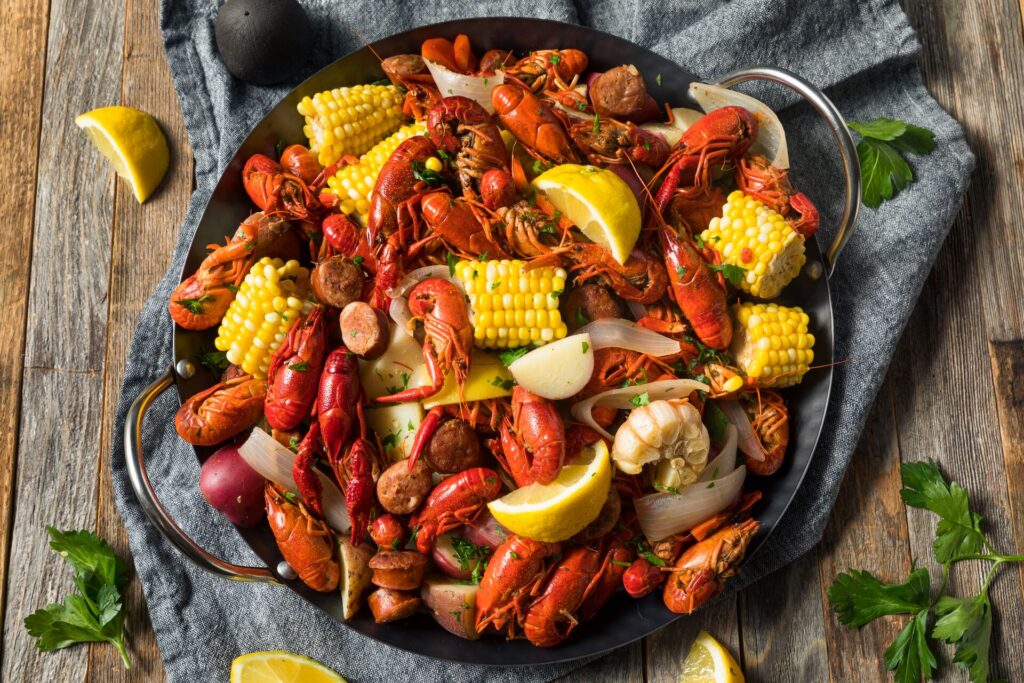
“One of my favorite parts of the tour is the Yscloskey fishing village, where we go to have lunch and meet with a fifth generation Isleños fishermen,” Barbara tells us. “It’s a very quaint, small village, you feel like you’re in in a fishing village in the South Pacific, with lodges up on stilts 20 feet high as is the requirement beyond the flood walls.
“It’s also a major commercial fishing community (Louisiana has the second largest fishery in America), that also defines who we are as a coastal community. Families have been here for generations, and they harvest and process blue crabs, shrimp, crawfish and oysters, everything we celebrate in our restaurants.
“Here you can just drink in the beautiful nature with birds and wildlife. You’ll see the fishermen coming in with their catch and have the chance to talk with a local. It’s like taking a step back in time.”
You may also be interested in: Why a Luxury Gold tour is perfect for families with grown-up children
Celebrate Spanish culture
“While New Orleans is more often known for its French influence, we like to celebrate the city’s very distinctive Spanish culture,” Barbara says. “Architecturally the French Quarter and its surrounds is more Spanish in character than French.”
Defeated by the British in the French and Indian War, France gave up control of Louisiana to Spain from 1763 until 1801. The Spanish recruited militia and farmers from the Canary Islands, a Spanish colony, to defend New Orleans from British expansion. They were known as ‘Isleños’.
“3000 Isleños were recruited, and we share the whole story with guests in the Islenos Village Complex,” she says. “There is a museum and also several of the original homes that the Spanish built. It’s a fascinating culture that most people don’t know about, and we celebrate this at the Isleños village that is now St. Bernard Parish.”
You might also enjoy reading: 9 essential cocktails to drink (and where to drink them) in New Orleans
Fresh eyes on New Orleans
 “Through the Mississippi Delta tour, we take guests on a deep dive into the history of New Orleans, to show how it emerged from a backwater settlement on the edge of a cypress swamp to one of the most prosperous cities in America by the mid 1800s,” Barbara explains. “You’ll see the colorful and beautiful historic architecture of neighborhoods that we travel through and understand the city’s development from living on the edge of the river, on the natural levees, to how we were able to expand into the surrounding areas.
“Through the Mississippi Delta tour, we take guests on a deep dive into the history of New Orleans, to show how it emerged from a backwater settlement on the edge of a cypress swamp to one of the most prosperous cities in America by the mid 1800s,” Barbara explains. “You’ll see the colorful and beautiful historic architecture of neighborhoods that we travel through and understand the city’s development from living on the edge of the river, on the natural levees, to how we were able to expand into the surrounding areas.
“You’ll also see architectural hidden gems such as New Orleans Lakefront Airport, one of the finest examples of art deco in the country. When it was built in 1934 it was the largest and most modern airport in America. Renovation after Hurricane Katrina revealed eight priceless murals by the Spanish muralist Javier Gonzalez on the second floor. The building and grounds also include a beautiful bas relief façade and a sculpture fountain by Mexican born Louisiana artist Enrique Alvarez.”
Maybe extend your time in this amazing city: 7 incredible destinations to extend your Luxury Gold vacation
Working with the water, for the future
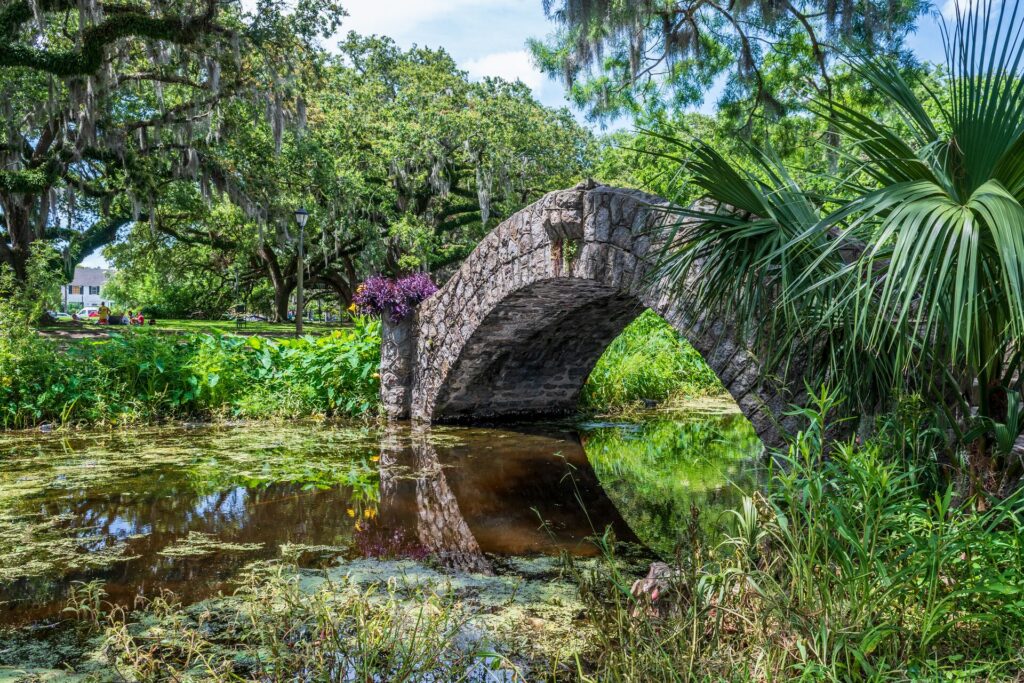
“We also celebrate nature in a special way at places like New Orleans City Park,” Barbara explains. Over 170 years old, one mile wide and three miles long comprising a total of 1,300 acres, New Orleans City Park is one of the largest urban Parks in the country. It is home to the largest grove of live oak trees in the world and one of the finest sculpture gardens in the country in the New Orleans Museum of Art.
“The museum shows in a special way how we are learning to live with, and celebrate, water as we learn from the Dutch for our future survival, and resilience post Katrina. We used to turn our backs to the water and try to pump it out as fast as we can. But now there’s a whole different way that we’re trying to capture water and celebrate it.”
This intimate look at the Mississippi Delta is one of the unforgettable moments that await on Southern Grace. Discover the best of the sublime American South with exquisite hotels, exceptional dining and exclusive experiences, curated for you.



